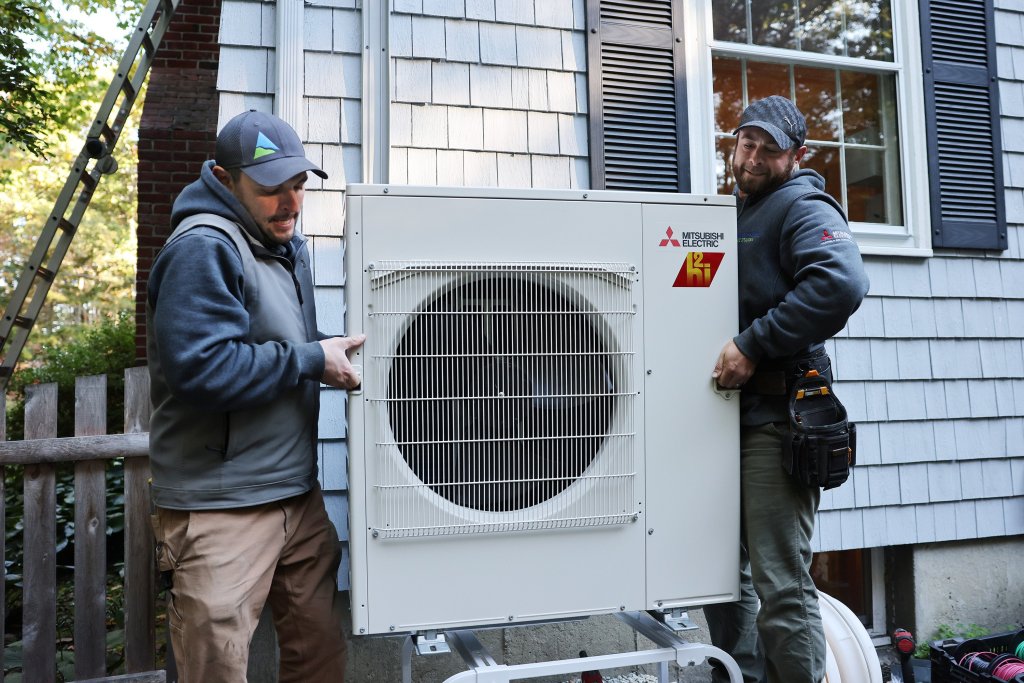
Roughly half of Maine households relied on oil as their primary source of heat last year, the lowest proportion in decades, the state announced Tuesday.
Despite the decline, Maine is still the most heating-oil dependent state in the country, according to data from the American Community Survey. And while demand for electric heat has increased, so too has Mainers’ reliance on other types of fossil-fuels.
In a written statement, Gov. Janet Mills pointed toward the state’s push toward heat pumps and electrification as a key driver away from oil.
“Since I took office, Maine’s reliance on heating oil has dropped significantly thanks to our nation-leading work to promote cost-saving measures, including programs focused on high-efficiency heat pumps,” she said.
In 2010, just over 70% of households relied primarily on heating oil, according to the community survey
That figure was 62% in 2018, the year before the state enacted legislation that set a goal of installing 100,000 heat pumps by 2025. Maine hit that benchmark about two years early, setting the new goal of installing 275,000 by 2027.
Dan Burgess, acting director of Maine’s new Department of Energy Resources called the decline in heating oil dependency to 50.3% an “unprecedented drop” that illustrates how prioritizing energy efficiency can reduce household bills and expand Maine’s economy.
The share of Mainers who primarily use electric heat rose from 5.1% in 2010 to 13.5% in 2024, according to the survey.
As heating oil fell, Mainers’ reliance on other forms of fossil fuels rose.
During that same 15-year period, household reliance on gas delivered through utilities nearly doubled, jumping from 4.2% of Maine households to 8.3% in 2024, survey data show. The proportion of households relying on propane and similar, tank-stored fuels rose from 6.7% in 2010 to 16% last year.
Reliance on wood heat also fell from 12% in 2010 to about 9.7% last year.
While heat pumps can lower households’ oil bills, they can also increase household electricity bills. Mainers’ electricity costs have risen in recent years, as have their average demand for electricity, partly driven by statewide initiatives to electrify things like home heating systems and vehicles. Statewide energy demand is predicted to double by 2050, according to the state’s latest energy plan.
New England has six of the top seven most heating oil-dependent states in the country, according to a Press Herald analysis of community survey data. New Hampshire comes in second, with 37% of households reliant on oil.
Alaska, where roughly 27.5% of households rely on oil, comes in fifth — bookended by Connecticut in fourth and Rhode Island in sixth.

We invite you to add your comments. We encourage a thoughtful exchange of ideas and information on this website. By joining the conversation, you are agreeing to our commenting policy and terms of use. More information is found on our FAQs. You can modify your screen name here.
Comments are managed by our staff during regular business hours Monday through Friday as well as limited hours on Saturday and Sunday. Comments held for moderation outside of those hours may take longer to approve.
Join the Conversation
Please sign into your CentralMaine.com account to participate in conversations below. If you do not have an account, you can register or subscribe. Questions? Please see our FAQs.